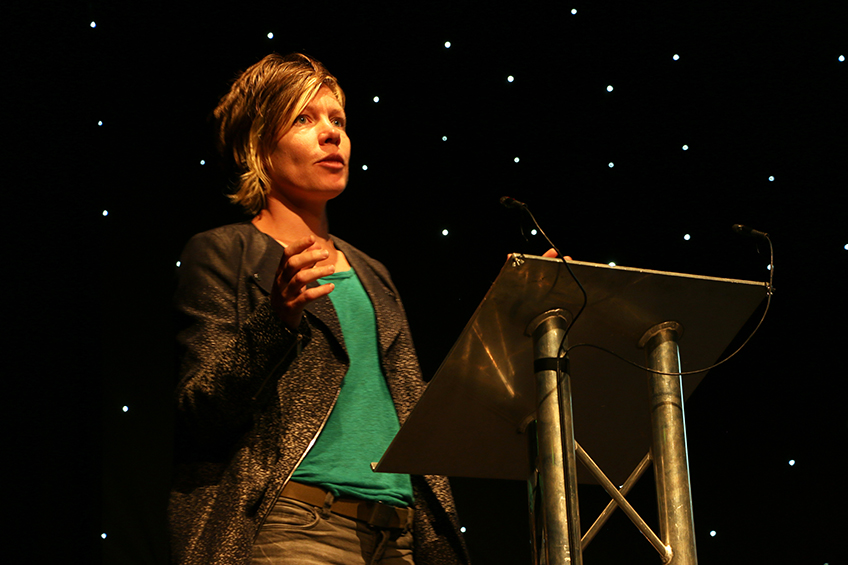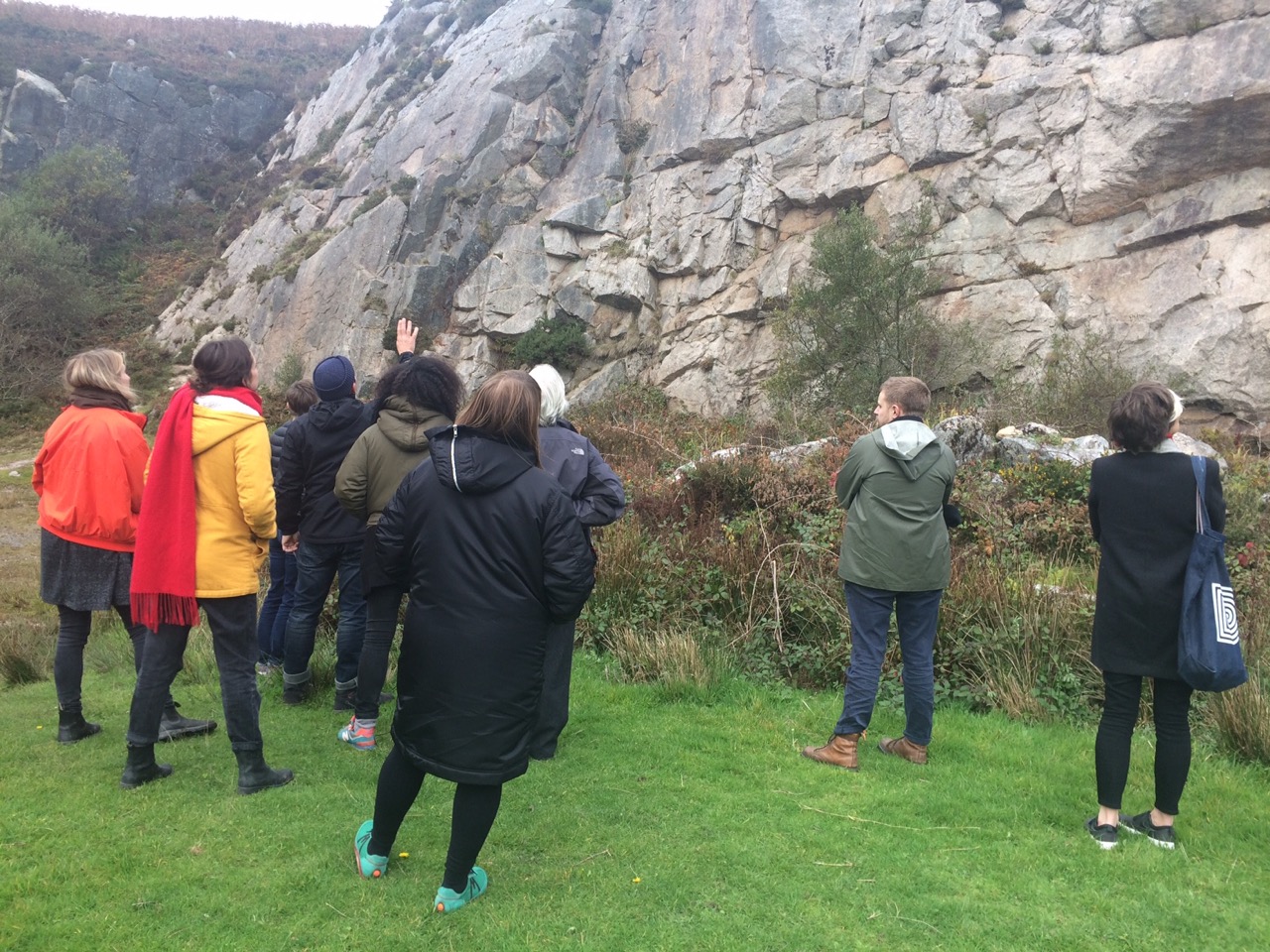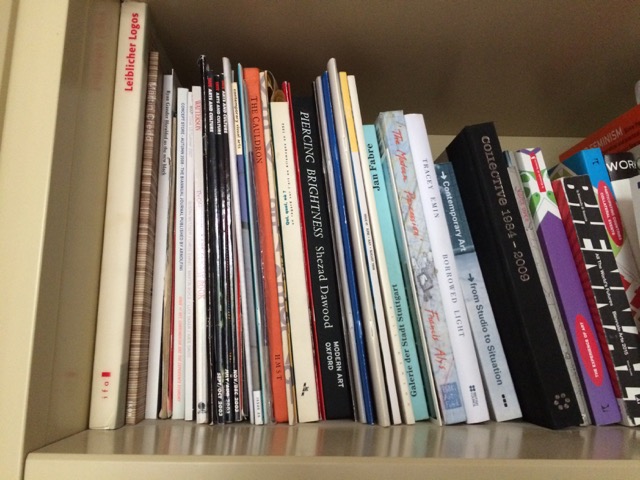CAST has made a commitment to work with Cornwall College as part of the Groundwork project. Funded by Arts Council England’s Ambition for Excellence scheme, Groundwork will culminate in an ambitious international contemporary arts programme in 2018. In October CAST launched the relationship with the college by inviting artists Richard Wentworth and Abigail Reynolds and cultural geographer Robyn Raxworthy to speak at a launch event in the college’s Keay Theatre in St Austell. The programme for the day was constructed around two themes: ways of looking and ideas of place.
Richard Wentworth’s extensive photographic project Making Do and Getting By observes and records how people make small interventions and adaptations in their environment, for instance by putting a piece of cardboard under a table to stop it rocking, or using an object to keep a door or window open. Richard is fascinated by landscapes that have been shaped by human activity – ‘areas of outstanding unnatural beauty’ – and by materials and industrial processes. He began his talk with the example of the mug in which he had been given his coffee at the college, comparing it with a classic paper cup, first designed in the 1930s. He talked about the way in which the paper cup was made, and how it fitted its function. He then showed pairs of photographs of things he has seen in his travels, examples of the interaction of design, accident and human intervention. He encouraged students to look longer and in different ways – to think about how the world is presented, to examine and question the visual information with which we are surrounded.
Abigail Reynolds introduced her ongoing collage practice, which splices together images from books representing the English landscape and English cultural traditions and, amongst other subjects, histories of resistance. For instance she showed an image from the Greenham Common Peace Camp protests in the early 1980s combined with an image of traditional Morris dancers. She then introduced and screened a trailer for her new film The Mother’s Bones, developed through working closely with the St Keverne brass band. The film explores the band’s relationship with a particular place, Dean Quarry on the Lizard peninsula, and is the result of a collaboration with the band leader, Gareth Churcher, who composed the music that is the soundtrack and backbone to the film.
Robyn Raxworthy is a PhD student at the University of Exeter and is a contributor to Heritage Futures, a four-year research project funded by the Arts and Humanities Research Council. Her work as a cultural geographer involves studying the interactions between places and human activities. One of the research questions she is addressing through the Heritage Futures research project is around what is considered ‘heritage’: must an area or activity, such as the China Clay industry, be in the past to be claimed as heritage? As part of her research work Robyn is conducting intensive fieldwork in the form of interviews and archive research, with a focus on themes of landscape change and transformation in China Clay Country.
The following day artist Gemma Anderson and botanist Colin French led a field trip in Clay Country with a group of Cornwall College students. The group visited Caerloggas Downs and saw how the land is reclaimed after the work of extracting clay has finished. This has led on to other excursions in Clay Country led by Cornwall College tutors, with students undertaking photographic projects, exploring site, materials and processes.


